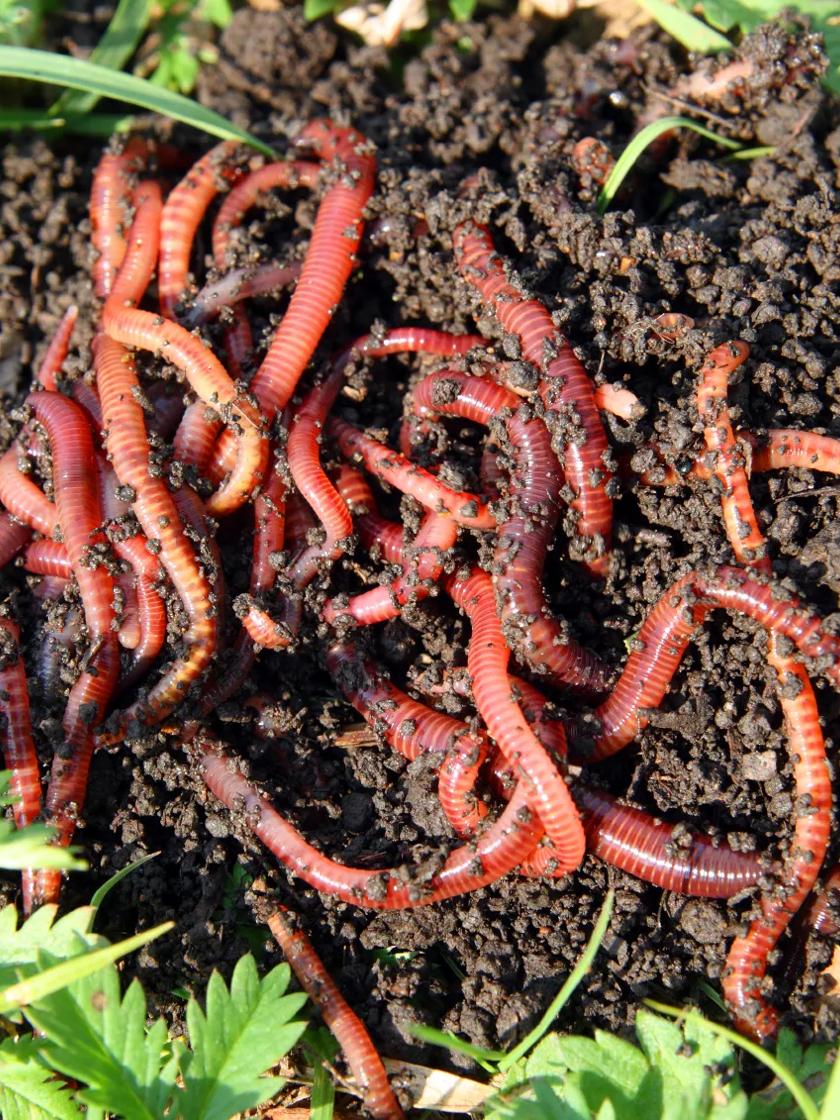Organic Composting with Red Wiggler Worms - Boost Your Garden's Growth
Organic Composting with Red Wiggler Worms - Boost Your Garden's Growth
Blog Article
Red Wiggler Worms Demystified: Opening the Tricks of Vermiculture for Greener Living and Nutrient-Rich Soil
In the world of lasting methods for enhancing dirt top quality and promoting eco-conscious living, red wiggler worms play a critical yet frequently overlooked duty. These simple creatures have the amazing ability to change organic waste right into nutrient-rich spreadings that act as a potent all-natural fertilizer. By diving into the globe of vermiculture, one can discover a variety of benefits that expand far beyond typical composting techniques. Understanding the ins and outs of caring for these worms, maximizing their atmosphere, and using their castings can bring about a greener way of life and much healthier soil for plants to prosper.
The Role of Red Wiggler Worms
Red Wiggler worms play a crucial duty in composting systems by efficiently damaging down raw material right into nutrient-rich castings. These starved eaters eat a variety of organic products, such as cooking area scraps, yard waste, and paper products. As they feed, the worms' digestive system processes break down the raw material into a penalty, dark, and nutrient-dense material called worm castings or vermicompost.
The spreadings created by Red Wiggler worms are very helpful for soil wellness and plant growth. They are rich in vital nutrients like potassium, nitrogen, and phosphorus, which are important for sustaining healthy plant advancement. Furthermore, worm spreadings include valuable microbes and enzymes that assist enhance dirt framework, boost water retention, and improve nutrient uptake by plants.
Advantages of Vermicomposting

In addition, vermicompost, the nutrient-rich end product of vermicomposting, offers as an exceptional organic plant food and soil conditioner. It boosts soil framework, improves dirt aeration, and boosts soil dampness retention. These buildings add to healthier plants with more powerful origin systems and much better resistance to diseases and bugs. Vermicompost likewise improves the soil with essential nutrients like nitrogen, phosphorus, and potassium, advertising plant growth and total soil fertility.
Furthermore, vermicomposting supports sustainable horticulture techniques by providing a natural and chemical-free choice to artificial plant foods. Red Wiggler Worms. This eco-friendly technique not just improves the dirt but likewise helps in reducing reliance on hazardous chemicals, promoting a greener and much more lasting method of horticulture
Establishing Up a Worm Container
When establishing a worm bin for vermicomposting, proper configuration is vital to guarantee the success of the composting process. The first step in setting up a worm container is choosing an ideal container.
After adding the bed linen, introduce the red wiggler worms to the container. It is advised to begin with a handful of worms and gradually raise as they multiply. The worms should then be supplied with food scraps such as fruit and veggie peels, coffee premises, and eggshells. It is necessary to avoid including meat, dairy, oily, or salted foods to stop bring in insects and producing undesirable odors.
Regularly check the moisture degrees and temperature in the worm container to ensure optimal problems for the worms. With proper configuration and upkeep, the worm bin Read More Here will properly convert organic waste into nutrient-rich garden compost for your plants and garden.
Harvesting Worm Castings
To successfully accumulate nutrient-rich worm spreadings from your vermicomposting system, an organized harvesting approach is essential. There are a couple of key steps to comply with to make sure an effective process when it comes time to gather the worm spreadings. Firstly, stop including fresh food scraps away of the worm bin for a number of weeks prior to collecting. This encourages the worms to migrate to the side with fresh bed linen and food, making it less complicated to dig the castings from the opposite.

Troubleshooting Common Issues
Identifying and resolving common obstacles that may emerge during the vermicomposting process is critical for preserving a effective and healthy worm container. Adding excess food scraps can lead to a build-up of moisture and level of acidity in the worm bin, potentially damaging the worms. Another problem is undesirable odors rising from the worm bin.
Furthermore, if the worm populace is declining or the worms appear harmful, it might be as a result of environmental stress factors such as severe temperatures or pH levels. Keeping an eye on these factors and making required changes is important for the wellness of the worms. By repairing these common problems without delay, vermicomposters can ensure a effective and smooth vermicomposting procedure while maintaining a growing worm population.

Final Thought
In final thought, red wiggler worms play an essential duty in vermiculture by breaking down organic issue right into nutrient-rich soil. Setting up a worm bin is important for successful vermiculture, and gathering worm castings provides beneficial garden compost for gardening.
As they feed, the worms' gastrointestinal processes damage down the organic issue into a penalty, dark, and nutrient-dense material known as worm castings or vermicompost.
The spreadings created by Red Wiggler worms are highly beneficial for dirt health and plant development. Adding excess food scraps can lead to a build-up of moisture and level of acidity in the worm bin, possibly harming the worms.Furthermore, if the worm population is decreasing or the worms pop over to this site appear unhealthy, it can be due to environmental stress factors such as extreme temperature levels or pH levels. Establishing up a worm bin is crucial for successful vermiculture, and collecting worm castings supplies valuable garden compost for horticulture.
Report this page